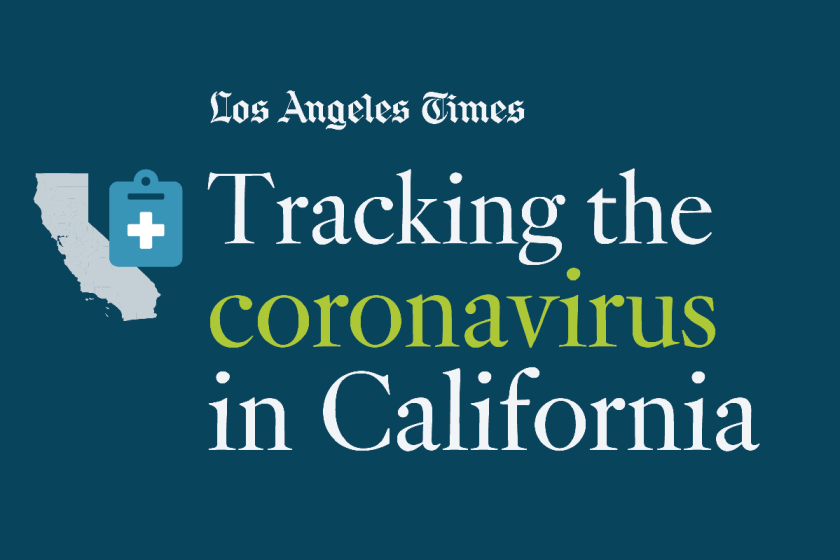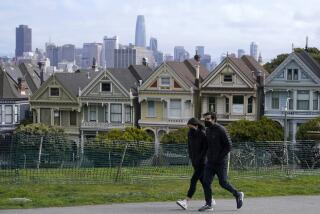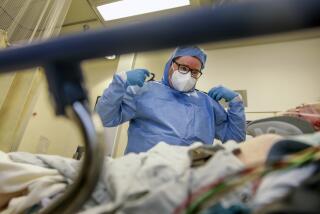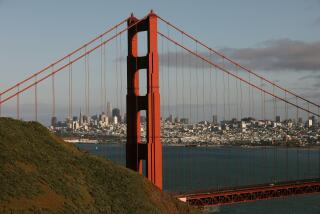‘Don’t go visit your mom’ on Mother’s Day, San Francisco health director advises
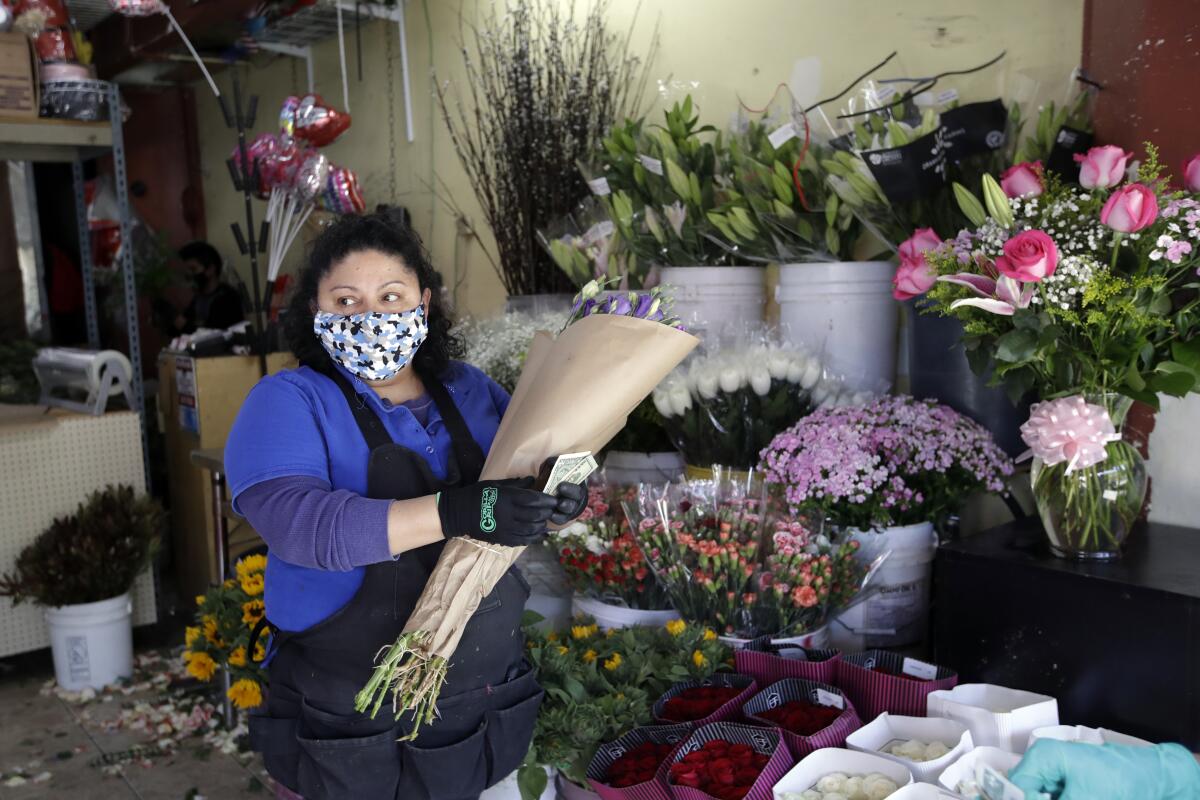
- Share via
Sorry, Mom.
The director of the San Francisco Department of Public Health told residents Wednesday not to visit their mothers on Mother’s Day, even if wearing masks and keeping six feet apart.
Unless residents live in the same households with their mothers, “the greatest gift we can give to our mothers this Mother’s Day is to stay away,” said Dr. Grant Colfax, who formerly worked in the Obama White House on HIV prevention. “Don’t go visit your mom in person this year.”
Colfax’s advice, shared by other public health experts, further muddles the picture of what Mother’s Day will look like Sunday in the Bay Area and beyond. Gov. Gavin Newsom said Monday that he might allow certain businesses, including flower shops, to reopen as early as Friday.
In Los Angeles, Mayor Eric Garcetti on Tuesday said he would allow wholesale florists to open as a horticultural exemption for Mother’s Day.
San Francisco is also allowing florists to operate, but Colfax’s advice suggests people shouldn’t deliver flowers to their moms. Florist delivery is one option permitted by the city.
San Francisco officials said the Bay Area’s stay-home orders would continue to be enforced even as Newsom prepared to announce potentially more relaxed statewide guidelines.
During a news conference, Mayor London Breed said the city had been working to learn the exact details of Newsom’s new guidelines but emphasized that Bay Area health officers could continue to order tighter restrictions.
The latest maps and charts on the spread of COVID-19 in California.
The reason has “everything to do” with the number of cases and deaths in the Bay Area, she said.
“The numbers are still going up,” she said. “The number of deaths are still going up, and we have not lowered the curve, and we have to be mindful of that.”
“The more that people have interactions with other people,” she added, “the likelihood that other folks will continue to get infected.”
Colfax said one of the goals that needed to be met before reopening was the ability to trace contacts of infected people and test them for the coronavirus.
“We are still building our surveillance system across the Bay Area,” he said. To do that, the region is working with scientists from the city’s public hospital, UC San Francisco and UC Berkeley.
“We must hold steady and let the data guide us,” he said.
He said city officials had been asked many questions about how Newsom’s new guidelines would affect San Francisco.
“Let me be clear: The San Francisco and Bay Area health orders currently do not permit curbside pickup from nonessential retailers,” he said. Restrictive orders take precedence over more relaxed guidelines, he added.
Toward a more sustainable California
Get Boiling Point, our newsletter exploring climate change, energy and the environment, and become part of the conversation — and the solution.
You may occasionally receive promotional content from the Los Angeles Times.
He said 27,334 residents had been tested for the virus as of Wednesday, and about 8% were positive for the disease.
City officials also announced that homeless numbers in San Francisco had gone up during the pandemic.
Homeless individuals from other counties have moved to the city in search of hotel rooms, which the city has leased for the most vulnerable members of its longtime homeless population.
The city is working to move some street and sidewalk tent encampments in the low-income Tenderloin district to other sites and will close some streets so people in tents can socially distance, officials said.
More to Read
Sign up for Essential California
The most important California stories and recommendations in your inbox every morning.
You may occasionally receive promotional content from the Los Angeles Times.
